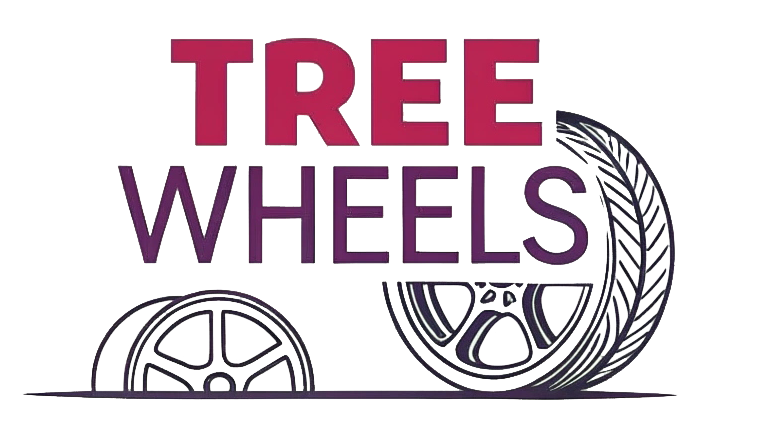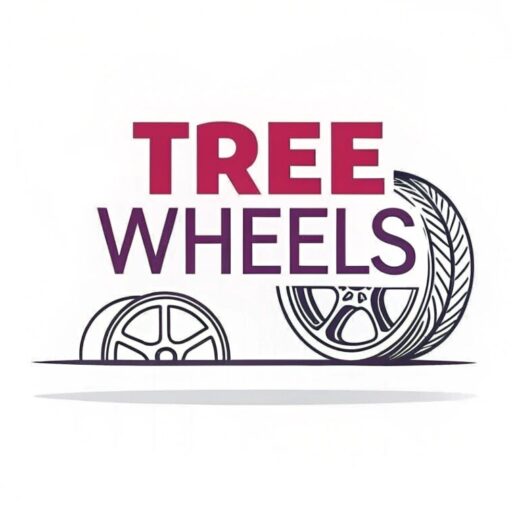I’ve always loved customizing cars, but spotting aluminum wheels can be tricky. Are your wheels aluminum or something else?
Aluminum wheels are common in modern cars. Check for a lightweight feel, non-magnetic surface, or supplier labels. Visual clues like polished finishes also help identify them.

I’ve spent years in the automotive world, and identifying wheel types is a skill I’ve honed. Keep reading to learn simple ways to spot aluminum wheels.
How Do You Know If a Rim Is Aluminum?
I once struggled to identify a rim’s material. It’s confusing when wheels look similar but aren’t. Are your rims aluminum?
Aluminum rims are lightweight and often polished. Look for stamped labels or a non-magnetic surface. Steel rims are heavier and magnetic.

Visual and Weight Differences
Aluminum rims stand out because they’re lighter than steel. I’ve lifted both, and the difference is clear. Aluminum often has a shiny, polished look. Steel rims, by contrast, are duller and heavier. Check for a stamped label on the rim’s inner side. It might say “aluminum” or “alloy.” If you’re still unsure, compare the weight by feel. A lighter rim is likely aluminum.
Supplier Labels and Documentation
The easiest way is checking supplier markings. I always ask suppliers directly or look for labels. Some rims have “AL” or “alloy” stamped on them. You can also check your car’s manual. It often lists wheel materials. If you’re buying aftermarket wheels, like our Tree Wheels forged rims, ask for documentation. Labels save time and guesswork.
| Feature | Aluminum Rim | Steel Rim |
|---|---|---|
| Weight | Lightweight | Heavier |
| Finish | Polished, shiny | Dull, matte |
| Magnetic | Non-magnetic | Magnetic |
| Common Label | “AL” or “Alloy” | None or “Steel” |
This table summarizes key differences. It’s a quick guide for identifying rims. Visual and weight checks, combined with labels, make the process straightforward.
Will a Magnet Stick to Aluminum Rims?
I once grabbed a magnet to test a rim, unsure of its material. It’s a simple trick. Will a magnet stick to your rims?
A magnet won’t stick to aluminum rims. Aluminum is non-magnetic. If the magnet sticks, you’ve got steel rims.

Why the Magnet Test Works
Aluminum is a non-ferrous metal, meaning it doesn’t attract magnets. I’ve used this test often, and it’s foolproof. Steel, a ferrous metal, pulls magnets right to it. Grab a fridge magnet and touch it to your rim. If it sticks, it’s steel. If it doesn’t, it’s likely aluminum. This test is quick and needs no expertise.
Limitations of the Magnet Test
The magnet test isn’t perfect. Some alloy wheels mix aluminum with other metals, but they’re still non-magnetic. I’ve seen rare cases where rims have steel inserts, confusing the test. Always combine this with a visual check. Look for aluminum’s polished finish. If you’re still unsure, check supplier labels or ask a professional. The magnet test is a great starting point but not the whole story.
| Test Method | Aluminum Rim Result | Steel Rim Result |
|---|---|---|
| Magnet Test | No attraction | Magnet sticks |
| Visual Inspection | Shiny, polished | Dull, matte |
| Weight Check | Lightweight | Heavier |
This table shows how the magnet test fits into rim identification. It’s reliable but works best with other checks.
How Do I Check If My Car Has Alloy Wheels?
I’ve customized many cars, and alloy wheels always catch my eye. But how do you confirm they’re alloy?
Alloy wheels are usually aluminum-based. Look for lightweight, shiny rims with “alloy” labels or non-magnetic surfaces. Steel wheels are heavier.

What Are Alloy Wheels?
Alloy wheels are made from aluminum mixed with other metals, like magnesium. I love their sleek look and performance. They’re lighter than steel, improving car handling. Most modern cars use alloys for better aesthetics and efficiency. Check your car’s manual or rim labels for “alloy.” If it says “steel,” you’ve got a different material.
Practical Identification Tips
Start with a visual check. Alloy wheels often have intricate, polished designs. Steel wheels look basic and dull. I once mistook a steel rim for alloy because of its paint. Use a magnet to confirm—alloys won’t attract it. Also, alloy wheels feel lighter. If you’re unsure, contact your supplier. At Tree Wheels, we always clarify materials for customers. Combining these checks ensures accuracy.
| Wheel Type | Material | Key Features |
|---|---|---|
| Alloy Wheel | Aluminum + metals | Lightweight, shiny |
| Steel Wheel | Steel | Heavy, dull |
This table highlights alloy wheel traits. Use it to compare and identify your wheels.
How Do I Know What Kind of Wheels My Car Has?
I’ve spent hours figuring out wheel types for my projects. It’s not always obvious. What wheels does your car have?
Check supplier labels, car manuals, or rim markings. Aluminum wheels are lightweight and non-magnetic. Steel wheels are heavier and magnetic.

Forged vs. Cast Aluminum Wheels
Aluminum wheels can be forged or cast, and I’ve worked with both. Forged wheels are stronger and lighter, with finer designs. Cast wheels are heavier and simpler. Look at the rim’s design—forged ones have sharper, intricate patterns. Cast wheels look bulkier. I once thought a cast wheel was forged because of its sleek paint. Check for “forged” or “cast” on the rim or ask your supplier.
Beyond Aluminum and Steel
Most cars have aluminum or steel wheels, but exotics might use carbon fiber. Carbon wheels are rare and super light. I’ve only seen them on racecars. For everyday cars, focus on aluminum vs. steel. Use a magnet, check weight, and look for labels. If you’re buying custom wheels, like Tree Wheels’ forged rims, suppliers provide clear specs. Always verify with documentation to avoid surprises.
| Wheel Material | Common Features | How to Identify |
|---|---|---|
| Aluminum (Forged) | Light, intricate | Non-magnetic, “forged” label |
| Aluminum (Cast) | Heavier, simpler | Non-magnetic, “cast” label |
| Steel | Heavy, dull | Magnetic, “steel” label |
| Carbon Fiber | Ultra-light, rare | Visual check, supplier info |
This table breaks down wheel types. It’s a handy guide for quick identification.
Conclusion
Identifying car wheels is simple with magnets, labels, and visual checks. Trust Tree Wheels for high-end forged wheels tailored to your needs.



